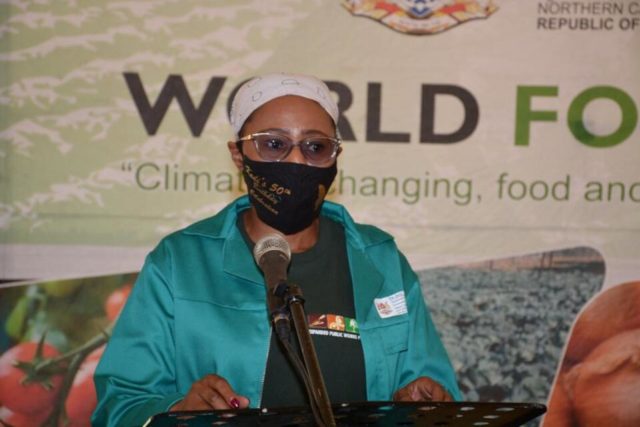This was the message of MEC Mase Manopole on World Food Day.
WITH challenges such as Covid-19, continuous drought conditions as well as veld fires, community members in the Northern Cape need to be mindful and come up with innovative solutions to eradicate hunger.
This was the message of the MEC of Agriculture, Environmental Affairs, Land Reform and Rural Development, Mase Manopole during the commemoration of World Food Day which was celebrated at the Vaalharts Research Station.
The day was commemorated under the theme “Grow, nourish, sustain. Together, our actions are our future,”.
Manopole said the aim of the day is to highlight efforts by the government in eradicating hunger and malnutrition through the Integrated Food Security and Nutrition Programme (IFSNP) which was introduced in 2004.
She said the department has intervened to ease the brunt felt by farmers during the drought.
“We are grateful that the John Taolo Gaetsewe and Francis Baard districts received significant rainfall in the past months. The rain in Pixley ka Seme, ZF Mgcawu and Namakwa were uneven and most parts had not received rain. In these regions, the drought has escalated to a current situation where more than 18 000 farm portions covering more than 25 million hectares are severely affected.
“As the Provincial Government, we have intervened by distributing more than 700 tons of lucerne from our fodder banks to farmers in need of fodder due to the drought. Through the intervention of national government, we managed to secure an amount of R36 million which was channelled toward drought relief.
“We also opened applications for farmers in Namakwa, Pixley ka Seme and ZF Mgcawu regions to apply for the relief. The closing date was October 15, 2020,” said Manopole.
Manopole added that the drought has impacted on the water levels of rivers in the Province.
“We are fortunate that the drought has not impacted on the flow of the main rivers which are feeding the irrigation areas of the Northern Cape. As a result, planting of crops such as wheat and barley, continued as normal for this time of the year. Significant expansion in planting of pecan nuts were experienced and a definite swing from wine grapes to dry grapes have been noticed due to favourable raisin prices.
“During the 2019/20 cropping seasons, the Northern Cape Province produced approximately 670 000 tons of maize and 240 000 tons of wheat, which contributes 6% and 16% respectively to the national grain production.
“The Province produces approximately 25% of the national cotton crop with a total of 60 775 lint bales,” she said.
She advised community members to start planting and harvesting their own crops in an attempt to fight hunger.
“Statistics show that over 2 million South Africans survive on only one meal a day.
“About 2% of households grow the majority of their own food, and the majority of small-scale producers in rural areas are unable to feed their families. The Northern Cape province has the lowest proportions of households that had adequate food access and therefore can be seen as the least food secure, at 66,5%. The involvement of households in agricultural activities for subsistence farming can play an important role in reducing the vulnerability to hunger of rural and urban food-insecure households. We continue to restore our motto of ‘One household, One food garden’,” Manopole said.








